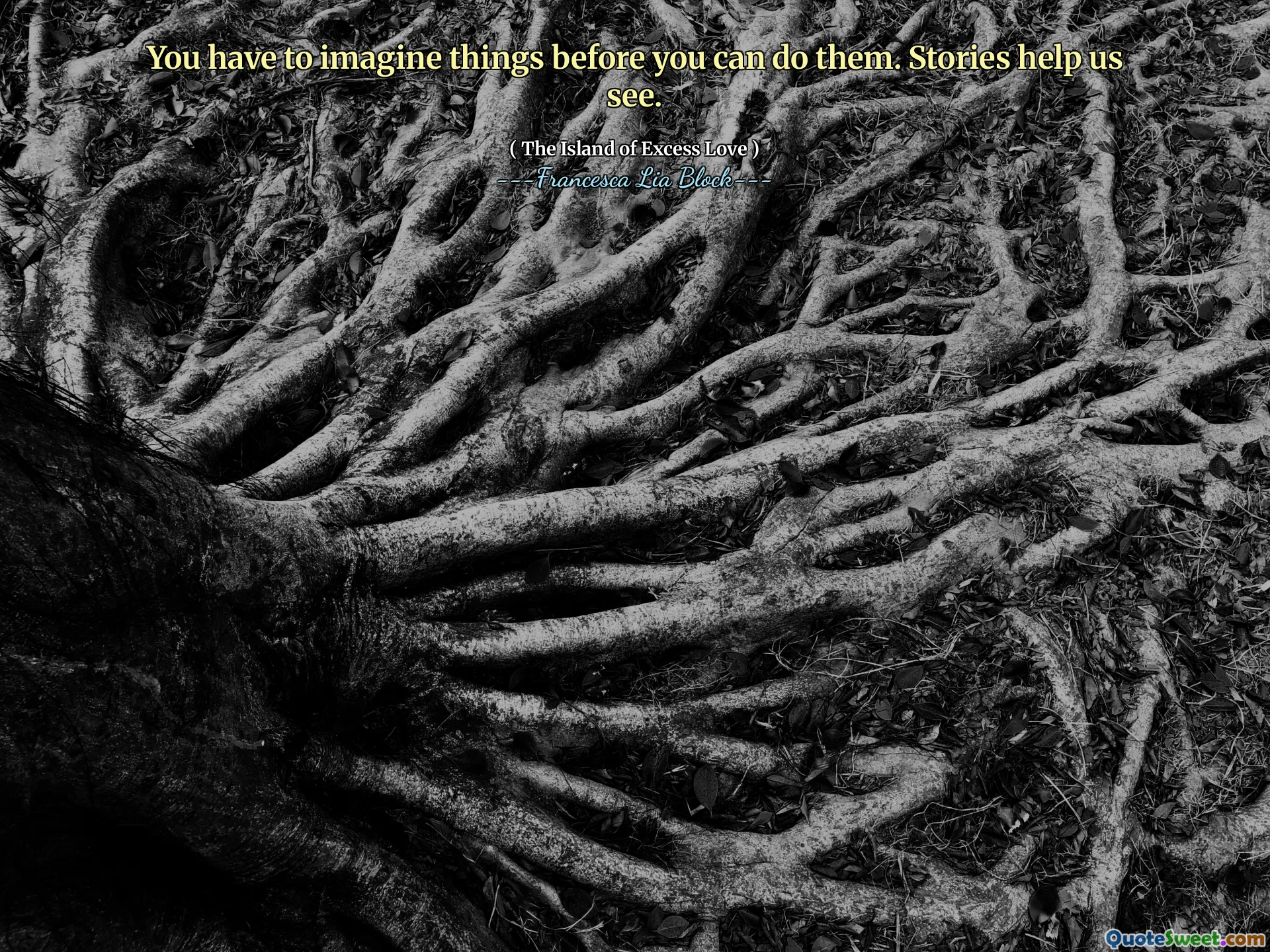
You have to imagine things before you can do them. Stories help us see.
This quote emphasizes the profound connection between imagination and action, highlighting how envisioning possibilities is a crucial step toward making them real. The idea that stories serve as a bridge in this process underscores their importance in human experience. Stories allow us to explore worlds beyond our immediate reality, offering a mental space where ideas and visions can flourish before they materialize in the physical world. They serve as a mirror to our innermost thoughts and aspirations, giving shape and substance to our dreams. When we immerse ourselves in stories, whether through books, film, or oral tradition, we gain the ability to see different perspectives, anticipate future scenarios, and understand complex emotions. This understanding fuels creativity and inspires us to take the first steps toward action. The act of imagining is inherently a form of hope; it is a vital component of innovation and personal growth. Without the power to envision what could be, progress would stagnate, and dreams might remain unrealized. In essence, stories function as catalysts that awaken our ability to imagine a better or different world, encouraging us to translate our visions into reality. Thus, embracing stories not only enriches our inner worlds but also empowers us to shape the external one. As Francesca Lia Block suggests in 'The Island of Excess Love,' our capacity to imagine is fundamental in both personal development and collective progress. The act of storytelling is both a mirror and a map, guiding us from imagination to action and understanding.






